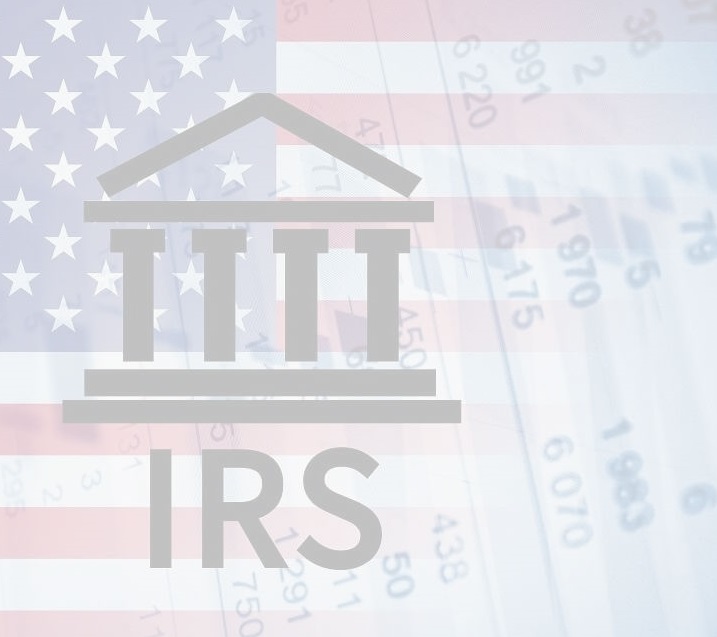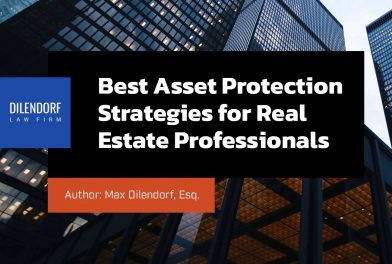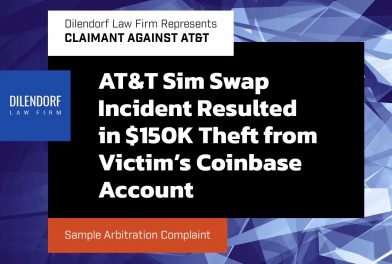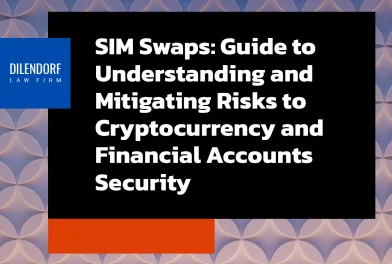14 Things Every Foreign Buyer of NYC Real Estate Should Know
To discuss your purchase of NYC real estate and tax-related questions, please contact Max Dilendorf to schedule a consultation. Email: md@dilendorf.com. Phone: 212.457.9797.

In a post-pandemic environment, there has been an increase in the number of foreign buyers dealing in U.S. real estate, with many focusing their attention on New York properties. The process of buying New York real estate can be a complicated one for foreigners.
This guide summarizes the top 14 things that foreign buyers should know when engaging in New York real estate transactions, from initial planning, to closing, to subsequent lease or sale.
Foreign Purchases of New York City Real Estate: Planning Consideration
1. Choosing the Optimal Real Estate Ownership Structure
Establishing a proper tax and ownership structure for owning New York real estate is one of the most important first steps for any foreign investor. Yet, it’s one that such investors often overlook.The federal government, New York state, and New York City each impose an income tax on rental income generated by properties within New York City. The combined rates of these taxes can be as high as 65% (including tax on repatriation of profits). These taxes also apply to gains from the sale of property.
In addition, both the federal government and New York state impose estate taxes on the value of property transferred at a person’s death. For foreign owners of U.S. property, the federal government imposes up to a 40% tax, and the New York government imposes up to a 16% tax, on the value of an estate to the extent that it exceeds $60,000.
However, foreign buyers can minimize their income- and estate-tax liabilities by structuring their U.S. holdings through a domestic or foreign trust or business entity, such as a corporation, limited liability company, or a foreign counterpart to those entities. Doing so requires proper advance planning with the assistance of a knowledgeable attorney.
For more information about U.S. taxes and holding structures for foreign buyers, see Foreign Investment in New York Real Estate: Tax & Legal Guide.
2. Obtaining a U.S. Tax ID

Regardless of whether a foreign purchaser plans to own New York investment properties in his or her own name or in a more tax-efficient holding structure, he or she will need to obtain a U.S. tax ID for him- or herself and the trust or business entity that will own the property, if any.
These IDs are required both for tax-reporting purposes and to open a bank account in the United States.
Individuals must obtain an Individual Taxpayer Identification Number (ITIN), and trusts and entities must have an Employer Identification Number (EIN). Obtaining these IDs can take as much as 10 weeks or more, meaning that foreign purchasers should begin the process of doing so well in advance of their New York real estate transactions.
To obtain an ITIN, a foreign investor must submit Form W-7, proof of identity, and proof of foreign status to the Internal Revenue Service (IRS). A certified copy of a foreign passport will suffice as proof of both identity and foreign status. U.S. embassies and consulates can certify foreign passports, but typically require an appointment for that purpose, which can take one to three weeks of advance notice. Once a completed ITIN application is received, the IRS usually assigns ITINs within seven weeks.
The process for obtaining an EIN for a trust or business entity is much simpler but still requires the foreign buyer to have an ITIN for him- or herself.
The IRS maintains a website where users can apply for EINs. The application process takes five to ten minutes, and the EIN is assigned immediately upon completion.
3. Opening a U.S. Bank Account
Foreigners can open U.S. bank accounts for themselves or for their trusts or business entities. In opening accounts, all banks must follow what are known as Know Your Customer (KYC) rules, which require banks to obtain certain information from prospective customers, such as their ITIN or EIN, a copy of the customer’s passport or driver’s license, copies of utility bills, and information on income sources.
Because of KYC (“Know Your Customer”) rules, opening an account can take several weeks, depending how quickly an ITIN or EIN can be obtained. Foreign buyers should plan ahead to satisfy these requirements when attempting to open a U.S. bank account.
Finding and Buying New York Property
4. Looking for Property
To locate suitable property in New York City, foreign buyers should hire a local real estate agent who specializes in finding properties in the neighborhoods the buyer is interested in.
These agents will be familiar with the condos, commercial investment properties, townhouses, and other properties available in those neighborhoods, as well as any idiosyncrasies involved in acquiring them.
Fortunately for buyers, U.S. real-estate agents’ commissions on a purchase are paid by the seller at closing, meaning that hiring an agent should be an easy choice for every purchaser.
5. Financing
Some foreign buyers mistakenly believe that they cannot qualify for financing from a U.S. bank. But U.S. banks do offer financing to foreign customers, though frequently with more restrictions than apply to domestic purchasers.
For example, banks often limit the amount of financing available to foreign buyers and require them to keep a certain amount of money on deposit with the bank.
6. Offer & Deal Sheet
Once the buyer locates a property to purchase, his or her agent will submit an offer that includes the terms of the buyer’s proposal. When a tentative agreement is reached, the seller will circulate a deal sheet that lists all the parties involved—including agents, brokers, and lawyers—and provides an overview of the transaction’s terms.
At this point, the buyer should obtain a commitment letter from his or her bank if the deal is contingent on financing, or provide proof of purchase funds if the transaction will be a cash deal.
7. Contract of Sale & Down Payment

The seller’s attorney will issue a contract of sale, which is subject to further negotiation by the buyer and seller. Once they agree to the terms of the contract, each will sign it, and it will then be enforceable by either party against the other.
Customarily, the buyer will be required to transmit 5-10% of the purchase price as a down payment along with the signed contract. If there are no problems with the property, a contract for sale can be signed within one week.
8. Condo Board Application
If the property being purchased is a condo, the buyer must submit an application package to the condo board. This is because condo boards have a right of first refusal in their condos, meaning that they can prevent a buyer from purchasing a unit by buying it themselves. The board application package generally includes financial and personal information about the buyer, as well as information about the transaction.
Other types of property, such as townhouses, are not subject to this requirement.
9. Closing by Power of Attorney
The sale is finalized at closing, when the seller provides a deed transferring the property to the buyer, and the buyer pays the seller the purchase price.
Many foreign purchasers are unaware that they do not need to be present at closing, but can use a power of attorney to authorize another individual to execute the closing documents on their behalf.
However, to be effective under New York law, the power of attorney must be notarized in a U.S. embassy or consulate. Setting up an appointment for this purpose can take anywhere from one to three weeks, so foreign buyers should take care to schedule the appointment well ahead of time.
10. Closing Expenses

Closing expenses will be allocated to either the buyer or seller by adjusting the final amount paid by the buyer and received by the seller.
Normally, the buyer is responsible for paying title insurance premiums, New York’s “Mansion Tax” and Mortgage Recording Tax, and the buyer’s attorney’s fees.
The seller is normally responsible for paying other transfer taxes, real-estate agent commissions, and the seller’s attorney’s fees. However, the parties are free to allocate closing expenses differently in their contract.
11. Insuring the Property
Buyers should be aware of three kinds of insurance for their New York property: title insurance, property insurance, and rent-loss insurance.
Title insurance insures the property owner—and the bank if the purchase is financed—against defects in legal title, such as unpaid tax liens or conflicting deeds by a prior owner. Title insurance premiums vary depending on the purchase price and amount financed, as detailed on page 23 of the Title Insurance Rate Service Association’s Title Insurance Rate Manual.
Property insurance protects owners against risks of physical damage to the property, such as damage caused by fire or severe weather. Rent-loss insurance is similar, but specifically protects owners against a loss of rental income when the property becomes uninhabitable because of such damage.
Renting and Selling New York City Real Estate
12. Renting the Property
As is the case when buying New York City real estate, foreign buyers would be well-advised to hire a local real-estate agent to market the property as available for rent and find suitable tenants. A good agent will list the property on popular Internet platforms, such as StreetEasy and NakedApartments. The agent will also hold an open house, advertising the property’s availability and making it accessible for prospective tenants to tour.
In short, hiring a good real estate agent can mean the difference between finding a tenant quickly and leaving the property unoccupied for months at a time.
Similarly, foreign buyers should retain a New York City real estate attorney to draft their lease and perform a due-diligence review of any prospective tenants. These steps will help to minimize the legal risks to the foreign landlord, including the risk of default by a tenant.
13. Taxes on Rental Income
As discussed earlier, with an improper holding structure, the combined federal, New York state, and New York City tax liability incurred on rental income can be as high as 65%.
For more information on this subject, see our Foreign Investment in New York Real Estate: Tax & Legal Guide.
14. Selling the Property; Taxes
The holding structure also affects the taxes due on sale of the property. An improper structure can result in taxes of up to 65% on income from the sale, including taxes on repatriation of the proceeds to the owner’s home country.
In addition, foreign owners of New York real property must be aware of the Foreign Investment in Real Property Tax Act (FIRPTA) and similar New York withholding requirements.
FIRPTA requires a person who buys U.S. real property from a foreign seller to withhold 15% (if the purchase price exceeds $1 million) of the gross purchase price—not profits—and remit the withheld amount to the IRS. New York similarly requires withholding 8.82% of the projected capital gain realized from the sale. These withholding requirements can result in the seller not having enough funds to cover his or her closing expenses.
However, with proper planning, FIRPTA withholding can be reduced or eliminated. For more on this subject, see How Foreign Investors Can Reduce or Eliminate FIRPTA Withholding Upon Sale of U.S. Real Estate.
Conclusion
With a basic understanding of how real estate sales occur in New York, as well as proper planning with the assistance of an experienced New York attorney, foreign buyers can ensure that their New York City transactions will proceed smoothly while minimizing their U.S. tax liability.
Resources for Buyers and Sellers of NYC Real Estate:
- Withholding of Tax on Dispositions of US Real Property
- Tax / Fee Calculator for Foreign Sellers and Buyers of New York City Real Estate
- New York Source Income of Nonresident Individuals: Real Estate
- New York State Income (Withholding Tax) Tax for Foreign Sellers of New York City Real Estate
- Structuring Investment in U.S. Real Estate by Foreign Persons
- FinCen Rules Requiring Identification for High-End Cash Buyers of Manhattan Real Estate
- Foreign Investors Receiving Rental Income from US Real Estate
- ITIN Guidance for Foreign Property Buyers/Seller
- New York City Property Deed Records: ACRIS
- Foreign Investment in Real Property Tax Act
- How Foreign Investors Can Reduce or Eliminate FIRPTA Withholding
- Rules Governing FIRPTA Withholding
- Format of Applications for FIRTPA Withholding Certificate
- Association of Foreign Investors in U.S. Real Estate
Co-Author: Rika Khurdayan, Esq.
Tax Disclaimer: The information contained herein is general in nature and based on authorities that are subject to change. We do not guarantee neither the accuracy nor completeness of any information and is not responsible for any errors or omissions, or for results obtained by others as a result of reliance upon such information. We assume no obligation to inform the reader of any changes in tax laws or other factors that could affect information contained herein. This publication does not, and is not intended to, provide legal, tax or accounting advice, and readers should consult their tax advisors concerning the application of tax laws to their particular situations.
Circular 230 Disclosure: This analysis is not tax advice and is not intended or written to be used, and cannot be used, for purposes of avoiding tax penalties that may be imposed on any taxpayer.
This article is provided for your convenience and does not constitute legal advice. The information provided herein may not be applicable in all situations and should not be acted upon without specific legal advice based on particular situations. Prior results do not guarantee a similar outcome.















